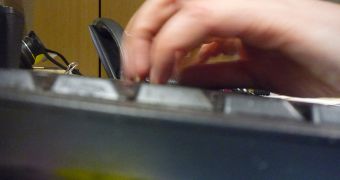A typosquatting experiment revealed that a popular social media website can be utilized by hackers and other evildoers to profit from the average Internet user's mistakes.
Highly popular websites such as Facebook are taken advantage of in any way possible by cybercriminals who want to steal our digital assets and a test performed by Websense revealed exactly how much wickedness hides behind a typo.
Before getting to the point, let's imagine a simple situation where you sit down at your computer and you rush to open your Facebook account to check out the latest comments and pictures. As you're in a hurry, instead of “facebook.com” you type “facebiij.com”.
Instead of an error page, you might get a simple website, but you also might be faced with a perfect Facebook replica, which eventually takes away with your credentials.
Luckily for social networking customers, major companies thought of these mistakes and besides the regular domain, they also bought others that might be typed by mistake. Facebook for instance also has “facebok.com” but as the security expert's experiment shows, most of the other names belong to cybervillains.
The figures show that 62% of the links point to some type of malevolent location, while the rest redirect to the official page or non-existent domains.
24% lead to bot networks and 21% are carefully placed to phish the username and password of any user who's in a rush to check his account. The rest point to malicious websites that supply anything from illegal content to adult materials.
To make sure you don't fall victim to such attempts, always be careful on what you're typing into the browser's address bar. The social media site is just an example, but you can be sure that any other visited address has been exploited in the same way by virtual crooks.

 14 DAY TRIAL //
14 DAY TRIAL //